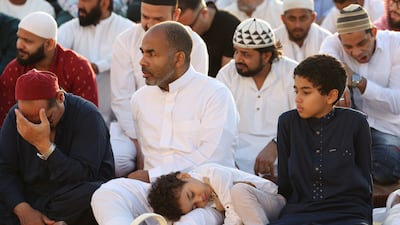Eid is always a special time. For many in the Middle East, this year’s celebration of Eid Al Fitr holds even more significance. While the festival’s position as an unchanging fixture of the region’s calendar remains, some countries that mark this important Islamic holiday are going through profound and rapid change.
In Syria, millions of Muslims are observing the end of Ramadan in a nation that has thrown off decades of Assad family rule. Although Syria still faces many serious problems and its transition to a new beginning has had some painful setbacks, this is the first time in years that families and communities have been able to come together for Eid Al Fitr with a sense of optimism that better days may lie ahead.
In neighbouring Lebanon, Eid celebrations are also taking place in changed circumstances. Plagued for years by political inertia and a lack of effective leadership, a new government in Beirut has been formed that at least offers the prospect of stability and prosperity after too many decades of conflict, economic turmoil and division.
An important part of Eid Al Fitr and the holy month that preceded it is their call to renew social solidarity and our commitment to good causes. In Syria, Lebanon and many other countries, Muslims will have already offered Zakat Al Fitr – a obligatory charitable donation to help the less-fortunate celebrate the end of Ramadan. Such alms-giving can have a powerful impact; the UNHCR’s Refugee Zakat Fund, for example, supports almost nine million forcibly displaced people in 31 countries thanks to contributions from more than 40,000 donors.
This determination to do good during Ramadan and Eid Al Fitr has also been prominent in the UAE. On Friday, Sheikh Mohammed bin Rashid, Vice President and Ruler of Dubai revealed that a Ramadan campaign to help those in need raised more than Dh3.72 billion ($1.01 billion) in donations. The Fathers’ Endowment campaign to provide treatment and health care for the needy attracted contributions from 277,000 donors.
The spirit of Ramadan was also evident in the run-up to the holy month. In mid-February, it was announced that the UAE would send 300 tonnes of essential food supplies to Gaza on aid flights over three days to offer crucial support to embattled Palestinians during Ramadan. This was part of the Emirates’ consistent humanitarian support for Palestinians.
Nevertheless, much of the Arab world still faces many challenges. Impoverished Yemen marks Eid today largely under the isolating and autocratic rule of the Houthi militant group. In Palestine, the continuing Israeli occupation and accompanying violence still blights too many lives. Sudan, which is in the throes of a bitter and costly civil war, finds itself at a crossroads as government forces push their opponents from the capital.
Such challenges mean that the generosity, empathy and consideration that characterises Eid Al Fitr will be needed for the foreseeable future. Practical support for those in countries that are trying to turn a corner on their difficult past or are struggling with new shocks must remain a feature of Eid celebrations, not just this year but in years to come.


